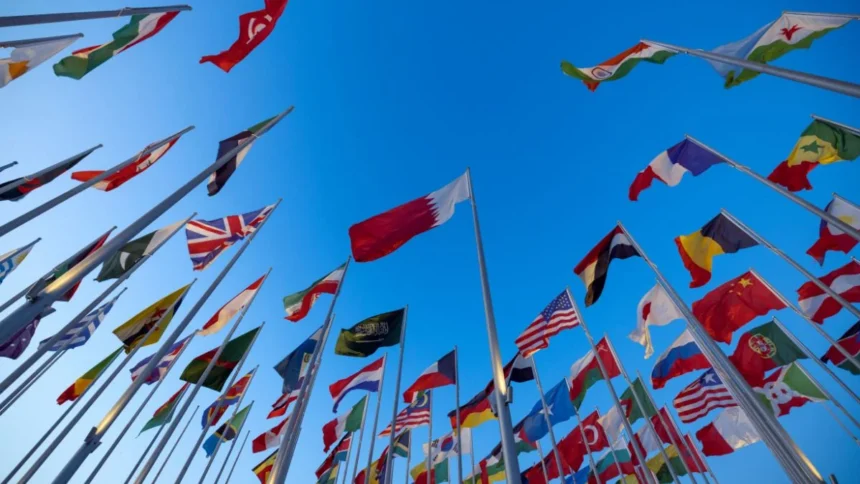In an increasingly interconnected world, global relations have become a cornerstone of international stability, economic growth, and cultural exchange. The dynamics of global relations, shaped by diplomacy, trade, technology, and shared challenges, are ever-evolving, reflecting the complexities of our modern era. Understanding these dynamics is crucial to fostering cooperation and bridging nations for a better future.
The Foundations of Global Relations
Global relations are built upon diplomatic ties between nations, which serve as the framework for collaboration and conflict resolution. Through treaties, alliances, and international organizations, countries establish channels to negotiate agreements, address disputes, and promote peace. The United Nations, World Trade Organization, and regional coalitions like the European Union exemplify the platforms where such interactions occur.
Diplomacy is not limited to government officials; it extends to non-state actors, including businesses, non-governmental organizations (NGOs), and even individuals. This multi-dimensional diplomacy enriches global relations, ensuring diverse perspectives contribute to addressing global challenges.
Economic Interdependence and Trade
Economic globalization has tightened the bonds between nations, making trade a critical aspect of global relations. Countries rely on one another for resources, labor, and markets, creating a web of interdependence. Free trade agreements, such as the North American Free Trade Agreement (NAFTA) and its successor, the USMCA, exemplify efforts to strengthen economic ties.
However, this interdependence also brings challenges. Trade disputes, such as tariff wars or disagreements over intellectual property rights, can strain relations. Balancing national interests with the benefits of free trade remains a central issue in global relations.
Technological Advancements and Global Connectivity
Technology has revolutionized global relations by breaking down communication barriers and fostering real-time interactions across borders. Social media, video conferencing, and digital platforms enable cultural exchange, collaboration, and diplomacy at unprecedented levels.
Technological advancements also highlight the need for international cooperation in areas such as cybersecurity, artificial intelligence, and data privacy. Collaborative frameworks ensure that these technologies are harnessed responsibly, benefiting humanity while mitigating potential risks.
Shared Challenges and Collective Action
Global challenges, such as climate change, pandemics, and terrorism, underscore the need for collective action. No nation can address these issues in isolation. International agreements, like the Paris Climate Accord and global health initiatives, exemplify the power of collaboration in tackling shared problems.
The COVID-19 pandemic illustrated both the strengths and weaknesses of global relations. While it fostered cooperation in vaccine development and distribution, it also exposed inequities and strained diplomatic ties. Lessons from this experience highlight the importance of equitable and inclusive global strategies.
Cultural Exchange and Soft Power
Cultural exchange plays a pivotal role in strengthening global relations. Through education, arts, and tourism, nations share their heritage and foster mutual understanding. Soft power, the ability to influence others through cultural appeal rather than coercion, has become a key tool in global diplomacy.
Countries like Japan, South Korea, and the United States leverage soft power to build favorable perceptions abroad. Initiatives such as international scholarships, cultural festivals, and global media production contribute to bridging cultural divides.
Challenges to Global Relations
Despite progress, global relations face significant hurdles. Rising nationalism, economic protectionism, and geopolitical rivalries threaten to undo years of diplomatic efforts. The Russia-Ukraine conflict, tensions in the South China Sea, and trade disputes among major economies reflect the fragility of international cooperation.
Addressing these challenges requires a renewed commitment to multilateralism, dialogue, and the principles of mutual respect and equality. Inclusive policies that consider the interests of smaller nations and marginalized communities are essential for sustainable global relations.
The Path Forward
The future of global relations hinges on adaptability and innovation. As the world changes, so must the strategies that govern international interactions. Nations must prioritize sustainable development, technological collaboration, and equitable partnerships to ensure a harmonious global landscape.
Education and awareness are equally critical. By fostering a global mindset among citizens, countries can cultivate empathy and understanding, reducing the likelihood of conflicts and promoting unity.
Conclusion
Bridging nations in a changing world is both a challenge and an opportunity. The dynamics of global relations, shaped by diplomacy, trade, technology, and shared challenges, require constant evolution and collaboration. By embracing inclusivity, mutual respect, and innovation, the international community can navigate complexities and build a future where cooperation and unity prevail.
Get more info: https://www.timelinetale.com/







